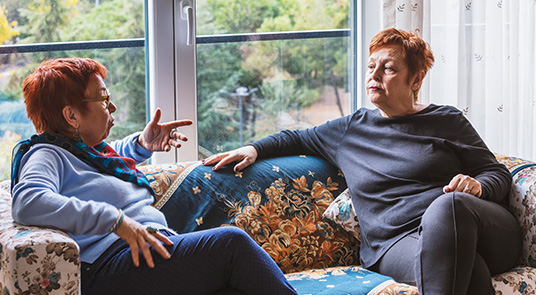How To REAL TALK
Recognize
There isn’t a checklist.
Recognizing domestic abuse isn’t about looking for a list of things, but about recognizing if a pattern of behaviours doesn’t seem to fit for someone, if people are acting different than they usually are, if they are afraid or fearful.
Forget your assumptions.
Recognizing is about checking in on our assumptions about people and their relationships. If something feels off, there’s a chance something is going on.
Show gratitude.
When someone chooses to open up to you, let them know you appreciate them sharing and acknowledge that it might have been hard to do so.
Recognize their perspective
Empathy means taking the perspective of another person, to acknowledge how they feel. Try not to sugar coat it or put a silver lining around what they’re going through, because you can’t fix it. Sometimes the best you can do is to recognize that what that person is going through is painful and difficult.
I’m sorry you are going through this.
Wow, that really sucks.
I hate that this happened.
That must be hard.
I can see how that would be difficult.
Remove judgement
Remember this conversation isn’t about you or your experience, but the connection between you and another person. You don’t have to understand or agree. Empathy is about being willing to connect within yourself to better understand something within another person.
Wow, I don’t know what to say.
I can’t imagine what you must be going through.
My heart hurts for you.
It makes me really sad to hear this happened.
Show gratitude
Many people struggle with vulnerability because they’ve been hurt before. When someone chooses to open up to you, let them know you appreciate them sharing and acknowledge that it might have been hard to do so.
Thank you for telling me.
I’m glad you told me.
Thank you for trusting me with this.
This must be hard to talk about.
You’re not alone.
Be curious.
Ask questions that give you a better sense of the situation and how best to support the person impacted by the abuse. Be curious and seek to understand the perspective of that person. It’s not about you or your experience.
Be encouraging.
When someone we care about is experiencing a bad time, we often want to “fix” it even though we can’t. That doesn’t mean you can’t be encouraging. Instead of saying, “it will get better” or “here’s what I would do,” tell them you love them and that they are strong.
Lose the ego.
Remember you are not the expert in this situation. Instead of looking for answers, look for a shared understanding. Asking questions is about the other person’s perspective, not what you want or need.
Acknowledge the violence.
When someone is talking to you about their experiences of abuse, it’s important to acknowledge the abuse and the impact that is having for them.
Remove blame.
Many people experiencing violence receive messages suggesting it’s their fault their partner is abusive to them. When we listen, we’re showing that person we don’t blame them for what is happening.
Honour their experience.
As listeners it’s important to acknowledge and honour all that a person has done to resist violence, to try and protect themselves and/or their children and to stand up for their own dignity and integrity.
Honour their choice.
People tend to resist abuse, which sometimes means staying in an unhealthy relationship. Leaving doesn’t always make the abuse stop, so staying is a choice too.
REAL Talk Workshop
This two-hour customized workshop is available to anyone interested in learning how to recognize domestic abuse, understand its impact on an individual and the community, and develop comfort in responding to domestic abuse disclosures, including providing appropriate support and referrals to services.
Download this guide
The How to REAL Talk guide is available as a print-friendly PDF.



